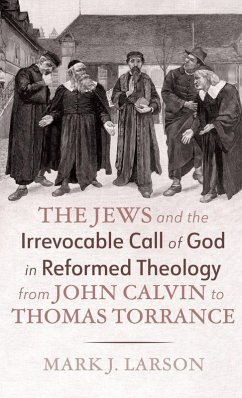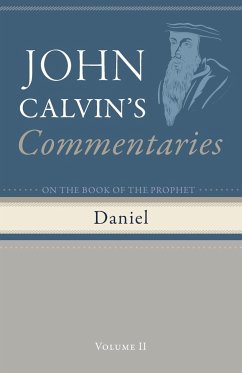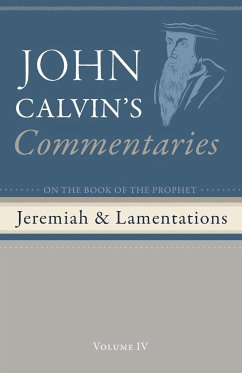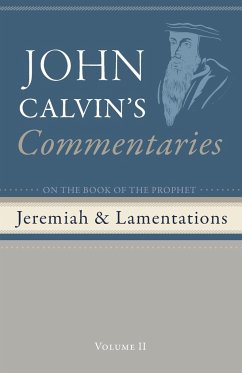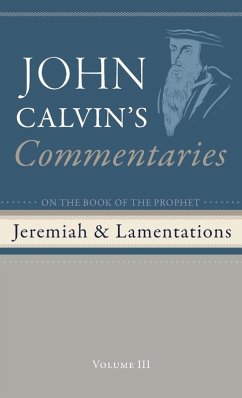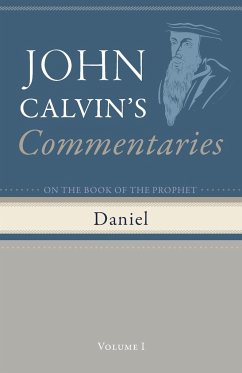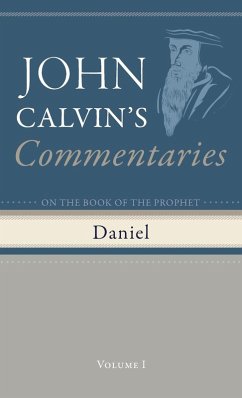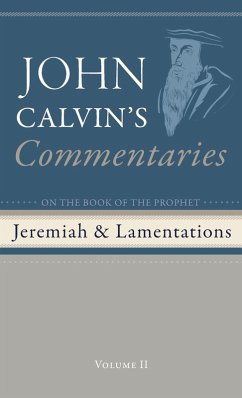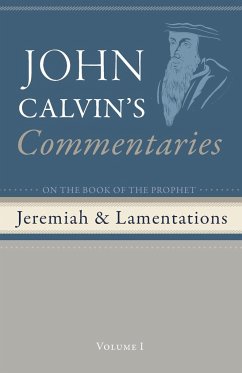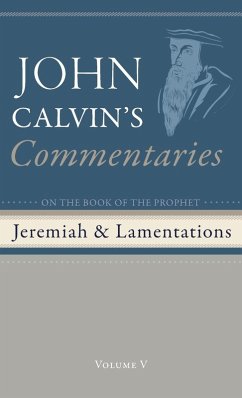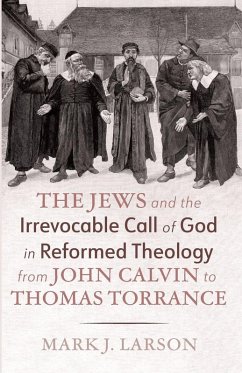
The Jews and the Irrevocable Call of God in Reformed Theology from John Calvin to Thomas Torrance
Versandkostenfrei!
Versandfertig in 1-2 Wochen
16,99 €
inkl. MwSt.
Weitere Ausgaben:

PAYBACK Punkte
8 °P sammeln!
There has been confusion in recent years concerning the teaching of classical Reformed thought regarding the Jews. Replacement theology alleges that the Jews, having rejected Christ, are no longer special in the eyes of God. Some have erroneously asserted that Calvin tends to supercessionism. Due to distinctive hermeneutical commitments, there has not been a monolithic Reformed point of view on all the details concerning the Jews in relationship to eschatology. Significant Reformed theologians in continuity with early church fathers anticipated the return of the Jews to the land promised in th...
There has been confusion in recent years concerning the teaching of classical Reformed thought regarding the Jews. Replacement theology alleges that the Jews, having rejected Christ, are no longer special in the eyes of God. Some have erroneously asserted that Calvin tends to supercessionism. Due to distinctive hermeneutical commitments, there has not been a monolithic Reformed point of view on all the details concerning the Jews in relationship to eschatology. Significant Reformed theologians in continuity with early church fathers anticipated the return of the Jews to the land promised in the Abrahamic covenant along with a millennium centered in Jerusalem with Christ as king bringing justice and peace to the nations. Calvin with his adherence to a metaphorical reading of Old Testament prophetic passages rejected such a prospect. It has been a mainstay of Reformed doctrine, however, that the Jews have been given an irrevocable call and continue to be loved by God. Calvin and his theological descendants have affirmed that the day will come when God will pour out the Spirit of grace upon his ancient people, resulting in their national salvation. Indeed, the heart of God is reflected in every prayer that all Israel may be saved.




